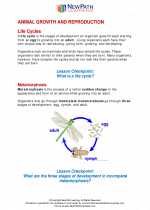Solubility
Solubility is the ability of a substance to dissolve in a solvent. When a solute (the substance being dissolved) is combined with a solvent (the substance doing the dissolving), the resulting mixture is called a solution. The amount of solute that can dissolve in a solvent is determined by the solubility of the solute in that particular solvent at a specific temperature and pressure.
Factors Affecting Solubility
- Temperature: In general, the solubility of most solid solutes increases with an increase in temperature, while the solubility of gases usually decreases with increasing temperature.
- Pressure: The solubility of a gas in a liquid is directly proportional to the pressure of the gas above the liquid. This means that an increase in pressure will usually result in an increase in the solubility of the gas in the liquid.
- Nature of the solute and solvent: The chemical structure and polarity of the solute and solvent can also affect solubility. Like dissolves like - polar solvents tend to dissolve polar solutes, while nonpolar solvents tend to dissolve nonpolar solutes.
Units of Solubility
Solubility is often expressed in terms of grams of solute that can dissolve in 100 grams of solvent at a specific temperature. The most common units for solubility are grams per 100 grams of solvent (g/100g) or grams per liter of solution (g/L).
Examples of Solubility
Some common examples of solubility include:
- Salt (sodium chloride) is highly soluble in water, with a solubility of approximately 36 grams per 100 grams of water at 20°C.
- Oxygen is sparingly soluble in water, with a solubility of approximately 0.03 grams per 100 grams of water at 20°C and 1 atm pressure.
- Sugar (sucrose) is highly soluble in water, with a solubility of approximately 2000 grams per 100 grams of water at 20°C.
Study Guide
As you study solubility, consider the following key points:
- Understand the concept of solubility and the factors that affect it, including temperature, pressure, and the nature of the solute and solvent.
- Be able to calculate and interpret solubility values expressed in different units, such as grams per 100 grams of solvent or grams per liter of solution.
- Practice identifying common examples of solubility and understanding the reasons behind their solubility or lack thereof in specific solvents.
Remember to review the key concepts and examples of solubility to ensure a solid understanding of this important topic in chemistry!
.◂Science Worksheets and Study Guides Fourth Grade. Animal Growth and Reproduction

 Activity Lesson
Activity Lesson
 Worksheet/Answer key
Worksheet/Answer key
 Worksheet/Answer key
Worksheet/Answer key
 Worksheet/Answer key
Worksheet/Answer key
 Worksheet/Answer key
Worksheet/Answer key
 Vocabulary/Answer key
Vocabulary/Answer key
 Vocabulary/Answer key
Vocabulary/Answer key
 Vocabulary/Answer key
Vocabulary/Answer key
 Vocabulary/Answer key
Vocabulary/Answer key
 Vocabulary/Answer key
Vocabulary/Answer key
